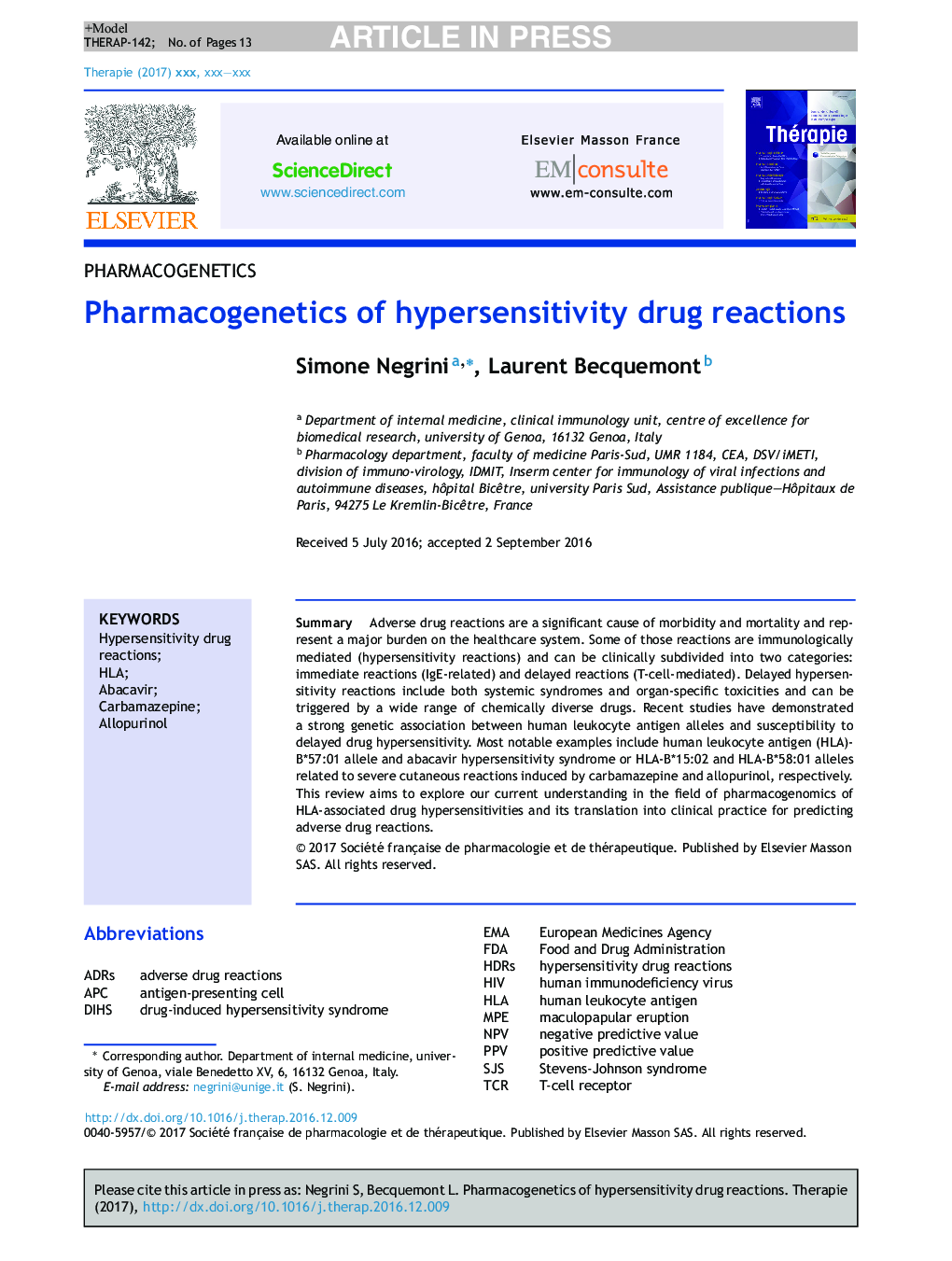| Article ID | Journal | Published Year | Pages | File Type |
|---|---|---|---|---|
| 5559123 | Thérapie | 2017 | 13 Pages |
Abstract
Adverse drug reactions are a significant cause of morbidity and mortality and represent a major burden on the healthcare system. Some of those reactions are immunologically mediated (hypersensitivity reactions) and can be clinically subdivided into two categories: immediate reactions (IgE-related) and delayed reactions (T-cell-mediated). Delayed hypersensitivity reactions include both systemic syndromes and organ-specific toxicities and can be triggered by a wide range of chemically diverse drugs. Recent studies have demonstrated a strong genetic association between human leukocyte antigen alleles and susceptibility to delayed drug hypersensitivity. Most notable examples include human leukocyte antigen (HLA)-B*57:01 allele and abacavir hypersensitivity syndrome or HLA-B*15:02 and HLA-B*58:01 alleles related to severe cutaneous reactions induced by carbamazepine and allopurinol, respectively. This review aims to explore our current understanding in the field of pharmacogenomics of HLA-associated drug hypersensitivities and its translation into clinical practice for predicting adverse drug reactions.
Keywords
Related Topics
Health Sciences
Pharmacology, Toxicology and Pharmaceutical Science
Pharmacology, Toxicology and Pharmaceutics (General)
Authors
Simone Negrini, Laurent Becquemont,
